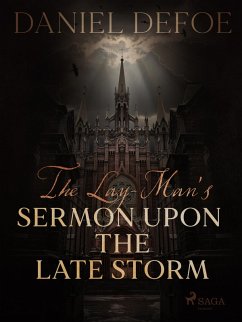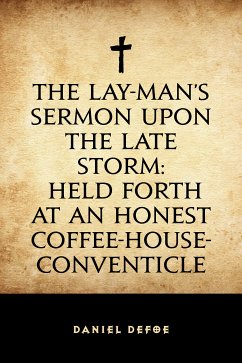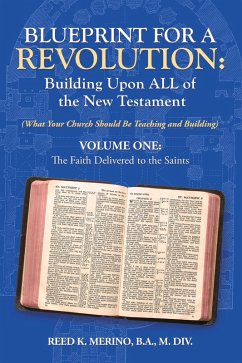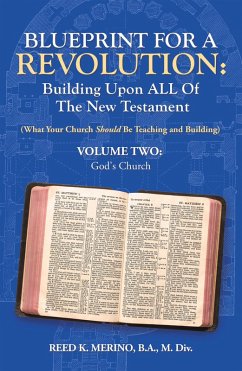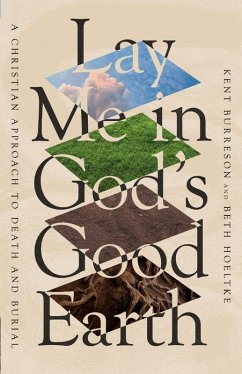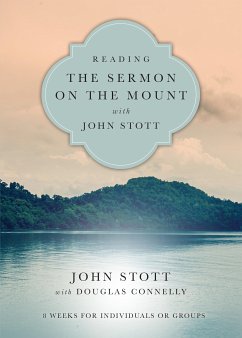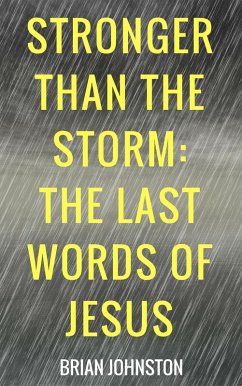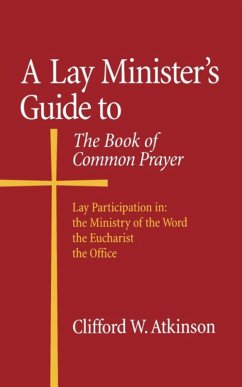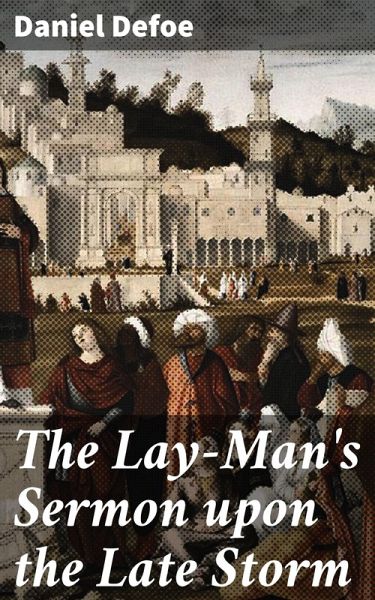
The Lay-Man's Sermon upon the Late Storm (eBook, ePUB)
Held forth at an Honest Coffee-House-Conventicle

PAYBACK Punkte
0 °P sammeln!
In "The Lay-Man's Sermon upon the Late Storm," Daniel Defoe presents a compelling reflection on the destructive storm of 1703 that ravaged southern England. Written in the form of a sermon, Defoe employs an accessible yet richly descriptive prose style that captures the chaotic energy of the tempest while inviting readers to ponder theological and moral implications inherent in such natural disasters. This work stands as a notable example of the intersection of religious discourse and the burgeoning literature of disaster in the early 18th century, marked by Defoe's characteristic blend of per...
In "The Lay-Man's Sermon upon the Late Storm," Daniel Defoe presents a compelling reflection on the destructive storm of 1703 that ravaged southern England. Written in the form of a sermon, Defoe employs an accessible yet richly descriptive prose style that captures the chaotic energy of the tempest while inviting readers to ponder theological and moral implications inherent in such natural disasters. This work stands as a notable example of the intersection of religious discourse and the burgeoning literature of disaster in the early 18th century, marked by Defoe's characteristic blend of personal anecdote and philosophical musing. Defoe, a prominent figure in early English literature, was profoundly influenced by his experiences as a merchant and his keen observations of society'Äôs vulnerabilities. His diverse career, which included journalism, trade, and even imprisonment for political dissent, informed his approach to writing about contemporary events. Defoe'Äôs engagement with moral themes and societal critique shapes this work, as he seeks to guide readers through the perplexities of human existence in light of divine providence amidst adversity. "The Lay-Man's Sermon upon the Late Storm" is a critical read for those interested in the intersections of literature, philosophy, and natural history. It offers profound insights into the human condition while providing a unique perspective on the societal impact of natural disasters. Defoe's masterful articulation of fear, morality, and reflection teaches us that even in calamity, there lies an opportunity for spiritual awakening.
Dieser Download kann aus rechtlichen Gründen nur mit Rechnungsadresse in A, B, BG, CY, CZ, D, DK, EW, E, FIN, F, GR, H, IRL, I, LT, L, LR, M, NL, PL, P, R, S, SLO, SK ausgeliefert werden.





